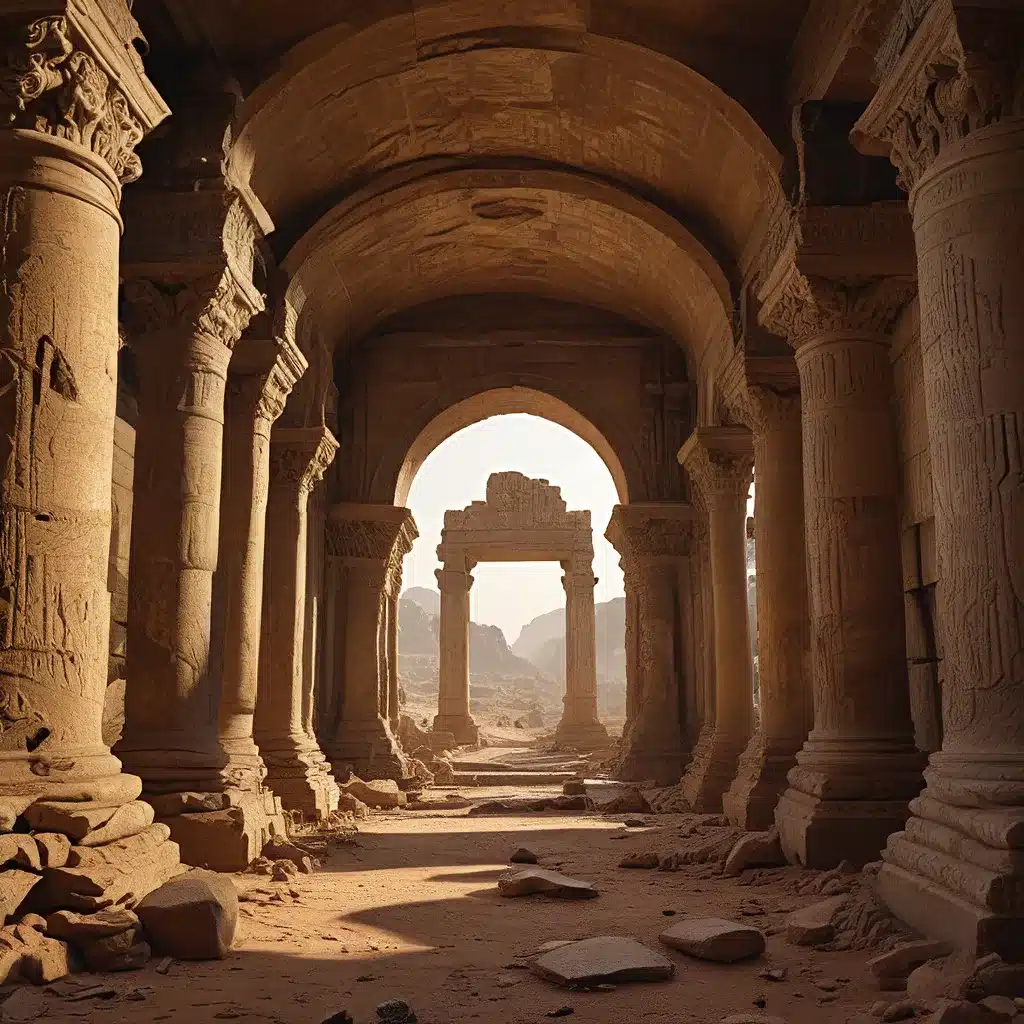
In the realm of ancient history, the human fascination with uncovering the secrets of the past has long been a driving force, fueling countless expeditions and archaeological discoveries. From the Renaissance to the modern era, our collective thirst for knowledge has led us to unearth the hidden treasures of bygone civilizations, shedding light on the cultural, artistic, and technological advancements that have shaped the trajectory of human evolution.
The Renaissance Reawakening
The Renaissance, a period marked by a cultural rebirth and a renewed interest in classical antiquity, played a pivotal role in shaping the modern understanding of ancient civilizations. During this era, the rediscovery of Greek and Roman archaeological sites offered unprecedented first-hand exposure to the grandeur and sophistication of the ancient world. This surge of interest in the classical past sparked a cultural revolution, with artists, architects, and scholars drawing inspiration from the symmetry, harmony, and proportions of Greek and Roman art and architecture.
The advent of Neoclassicism, a style that emerged in the mid-18th century, was a direct manifestation of this fascination with antiquity. Neoclassical art and architecture paid homage to the iconic features and motifs of classical art, demonstrating a yearning for the simplicity, symmetry, and idealism that defined the works of ancient Greece and Rome. From the grand compositions of French 18th-century painting to the towering columns of Neoclassical buildings, this movement captured the essence of the past and ushered in a new era of cultural appreciation for the archaeological marvels that lay hidden beneath the earth.
Uncovering the Secrets of the Past
The surge in archaeological discoveries during the 18th and 19th centuries played a pivotal role in the rise of Neoclassicism and the broader cultural renaissance. Major excavations of ancient sites across Europe, including Athens, Pompeii, and Herculaneum, provided a wealth of new information and artifacts, captivating the public’s imagination and fueling a renewed interest in the cultures of the past.
The impact of these archaeological breakthroughs was further amplified by the Grand Tour, a 17th- and 18th-century European custom in which young, wealthy travelers would embark on educational trips across the continent in search of art and culture. During these excursions, the elite had the opportunity to visit the studios of renowned Neoclassical artists, encounter ancient artifacts, and collect prized souvenirs to bring back to their home countries. This exchange of ideas and cultural artifacts helped to facilitate the spread of Neoclassical ideals, further cementing the connection between the present and the past.
The Enduring Influence of Antiquity
The cultural impact of Neoclassicism extended far beyond the realms of art and architecture. The work of German philosopher and archaeologist Johann Joachim Winckelmann, who praised the authority and idealistic qualities of Greek art, played a pivotal role in shaping the Neoclassical movement. Winckelmann’s writings not only sparked a debate on the superiority of Greek and Roman art but also inspired a generation of artists and scholars to embrace the simplicity, harmony, and proportions of classical antiquity.
The influence of Greek and Roman history and mythology can be seen throughout Neoclassical art, from the heroic depictions of battles and historical scenes to the fantastical elements that were incorporated to achieve an antiquated aesthetic. This fascination with the idealism of the classical world reflected a broader belief that our reality is shaped by our own thoughts and ideas, a philosophy that resonated deeply with Neoclassical artists and patrons.
The Enduring Allure of Abandoned Spaces
In the realm of modern urban exploration, the allure of abandoned spaces extends far beyond the realm of contemporary architecture and design. As evidenced by the exploration of the ‘Red Cinema’ in Hungary, the forgotten corners of our past can hold a profound fascination for those drawn to the mysteries of bygone eras.
The abandoned Red Cinema, a once-thriving cinematic hub, stands as a testament to the enduring power of urbex (urban exploration) to uncover the hidden stories of the past. As the team from Urbex-Travel ventured into the dilapidated corridors and silent projection rooms, they were captivated by the echoes of bygone performances, the faded posters, and the overlooked artifacts that spoke volumes about the cinema’s illustrious history.
This urbex adventure was more than just an exploration of an abandoned space; it was a journey through the annals of cinematic history, a chance to connect with the cultural narratives that had long been silenced by the passage of time. Through the lens of urbex photography, the team documented the haunting beauty and evocative decay of the Red Cinema, preserving the essence of this cinematic relic for future generations to discover and appreciate.
Unlocking the Mysteries of Ancient Civilizations
The enduring fascination with the archaeological marvels of the past continues to drive new discoveries and shape our understanding of human civilization. From the grandeur of the Renaissance to the modern era of exploration, the relentless pursuit of knowledge has led us to uncover the secrets of ancient cultures, shedding light on their technological advancements, artistic achievements, and cultural practices.
As we delve deeper into the rich tapestry of human history, the importance of preserving and celebrating these archaeological treasures becomes increasingly paramount. By embracing the lessons of the past and honoring the cultural legacies of bygone civilizations, we can cultivate a deeper appreciation for the diverse tapestry of human experience, and inspire future generations to continue the journey of discovery.
Whether it’s the awe-inspiring grandeur of Neoclassical architecture, the enigmatic allure of abandoned spaces, or the timeless wonder of ancient artifacts, the relentless pursuit of the past continues to captivate and inspire us. As we unravel the mysteries of our shared history, we unlock the keys to a deeper understanding of the human experience, and pave the way for a future where the lessons of the past can guide us towards a more enlightened and interconnected world.


